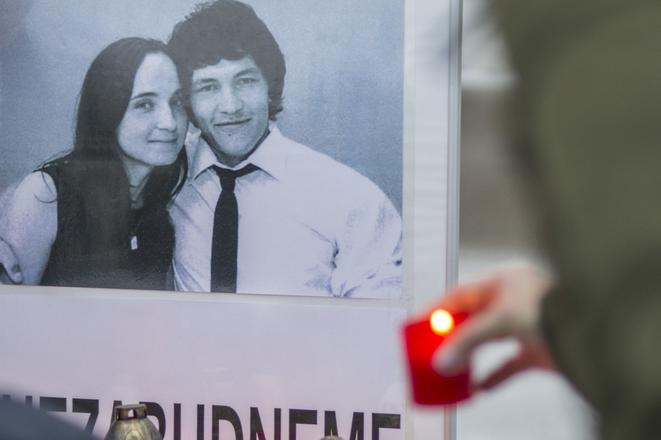The non-governmental organisation Reporters Without Borders (RSF) on August 21 announced that it harbours concerns regarding the current situation in Slovakia six months after the February 21 murders of investigative journalist Ján Kuciak and his fiancée Martina Kušnírová.
A statement sent to media by head of RSF Brussels branch, Julie Majerczak, asserts that the investigation into the double murder “has ground to a standstill” and any promises about protecting journalists have been forgotten, the TASR newswire wrote on that day.
“We’d need a miracle to see successful results in the investigation into the murder of Jan Kuciak,” the text quotes one of the murdered journalist’s colleagues. RSF also pointed out that a number of incongruities emerged during the investigation, as proven partly by a joint statement dated August 17 and signed by more than 300 Slovak journalists, which cast doubt on the independence of the investigation.
Slovak jounrnalists worried
The NGO, tasked with defending the freedom of the press and media, also echoed the concerns of Slovak journalists about the lack of tangible changes in police and Prosecutor’s Office bodies following the murders, in view of the fact that the articles on which the late Kuciak worked dealt with alleged ties between organised crime and individuals close to former prime minister Robert Fico (2012-18).
“Slovak democracy cannot abandon a genuine and independent investigation,”
reads the statement, as cited by TASR. “Those who killed Ján Kuciak and his fiancée must be identified and taken to trial.”
Atmosphere, press freedom worsen
Worrying is a trend that involves an increasingly worsening climate for the media, indicative of the lack of political will to allow Slovak journalists to work safely, wrote RSF. In this context, Slovak journalists pointed out that the kind of language used by government officials in their communications with journalists since Kuciak’s murder has been harsher than ever before.
According to the latest RSF global index on the freedom of press, Slovakia has dropped ten places in comparison to 2017 and now ranks 27th out of the 180 countries monitored.



 Illustrative stock photo (source: TASR)
Illustrative stock photo (source: TASR)